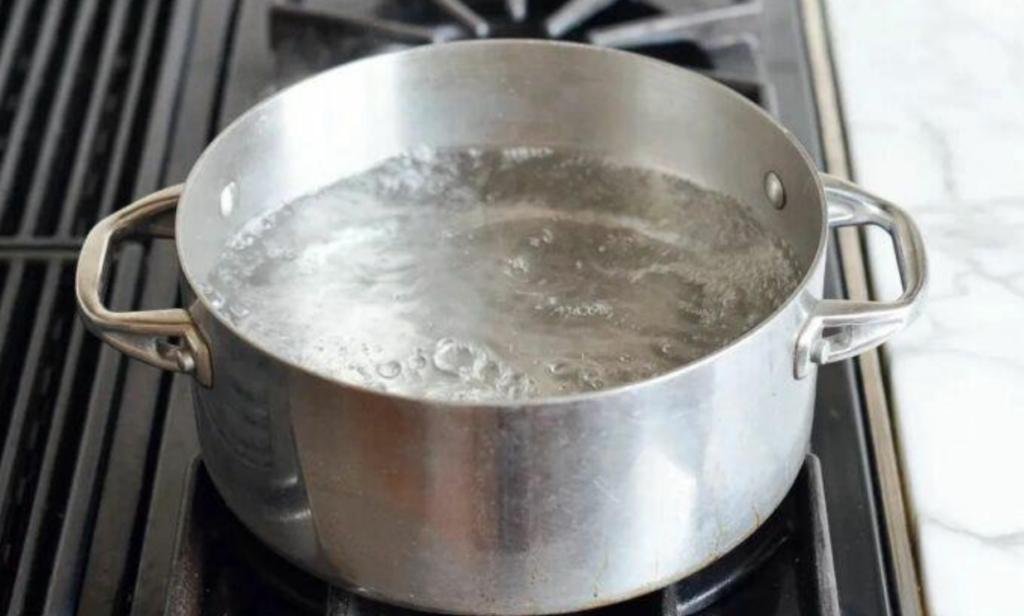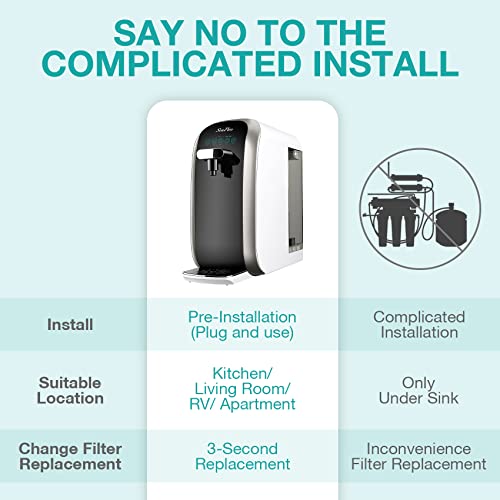
[ad_1]
 Authored by Amie Dahnke by way of The Epoch Occasions (emphasis ZeroHedge)
Authored by Amie Dahnke by way of The Epoch Occasions (emphasis ZeroHedge)
Boiling faucet water is nice for extra than simply killing sure dangerous pathogens. It may well additionally destroy contaminants akin to microplastics and chemical substances, making ingesting water safer to drink.
A brand new analysis letter printed in Environmental Science & Expertise Letters signifies that boiling faucet water for simply 5 minutes may cut back the quantity of microplastics by as much as 90 p.c. Researchers from Guangzhou Medical College and the Middle for Environmental Microplastics Research in China advocate boiling water in nonplastic electrical kettles on fuel stoves to take away impurities akin to polystyrene, polyethylene, and polypropylene.
In accordance with the researchers, boiling water has been used since historic occasions as a purification methodology in some Asian nations. “This straightforward boiling-water technique can ‘decontaminate’ [nano- and microplastics] from family faucet water and has the potential for harmlessly assuaging human consumption of [nano- and microplastics] by way of water consumption,” they wrote.
More durable Water Captures Extra Microplastics
Water of a sure alkalinity and hardness sometimes produces incrustants—insoluble mineral remnants like calcium carbonate—upon boiling. For the examine, the researchers hypothesized that calcium carbonate encounters nanoplastics because it crystallizes in scorching water. The calcium carbonate then encapsulates the nanoplastics because it turns into the flaky crust you generally see on the backside of your tea kettle.
 SimPure Y7P-BW UV Countertop Reverse Osmosis Water Filtration Purification System, 4 Stage RO Water Filter, Bottleless Water Dispenser, 4: 1 Pure to Drain, BPA Free (No Set up Required)
SimPure Y7P-BW UV Countertop Reverse Osmosis Water Filtration Purification System, 4 Stage RO Water Filter, Bottleless Water Dispenser, 4: 1 Pure to Drain, BPA Free (No Set up Required)
The examine confirmed that boiling onerous faucet water containing 300 milligrams per liter (mg/L-1) of calcium carbonate diminished nano- and microplastics by practically 90 p.c, whereas water containing 80 mg/L-1 diminished particles by 84 p.c. In delicate water samples containing lower than 60 mg/L-1 of calcium carbonate, boiling nonetheless diminished plastics by over 25 p.c.
The Drawback With Hundreds of thousands of Tons of Plastic
Due to our heavy reliance on plastic, nanoplastics and microplastics are frequent in groundwater and floor water across the globe. Microplastics are actually all over the place, having been detected as far south as Antarctica and north because the Arctic. These insidious particles have even been detected on the peak of Mt. Everest and down within the Mariana Trench. Actually, plastic includes the most important portion of marine rubbish; in response to a 2020 examine printed in Science of the Whole Atmosphere, greater than 8 million tons of plastic entered the ocean in 2017. That quantity represented over 33 occasions extra plastic than the quantity that had entered the ocean in 2015, indicating a disturbingly worsening drawback.
As plastic disintegrates, microscopic items are launched into the surroundings. Microplastics are sometimes lower than 5 millimeters in dimension however can break down into even smaller items known as nanoplastics. Nanoplastics are practically not possible to see at 1 micrometer in dimension. The micro and nano items have been present in water, air, soil, meals, and desk salt, in response to some research.
The well being results of nano- and microplastics haven’t been absolutely realized. Nonetheless, analysis has urged that their accumulation within the human physique may cause insulin resistance, liver metabolic dysfunction, DNA injury, organ dysfunction, immune response points, neurotoxicity, and reproductive hurt.
Whereas the analysis crew solely targeted on three kinds of nanoparticles, the invention is a boon for public well being. The crew estimated that individuals who boil their water absorb two to 5 occasions much less nanoplastics than those that don’t.
“Consuming boiled water apparently is a viable long-term technique for decreasing international publicity to [nano- and microplastics],” the analysis crew wrote, including that it’s possible more practical than ingesting bottled water, particularly bottled in plastic. The typical liter-sized bottle of water comprises 240,000 items of nanoplastic, which is 10 to 100 occasions extra particles than beforehand thought.
Sourced from ZeroHedge
Picture: Jenn Segal
[ad_2]